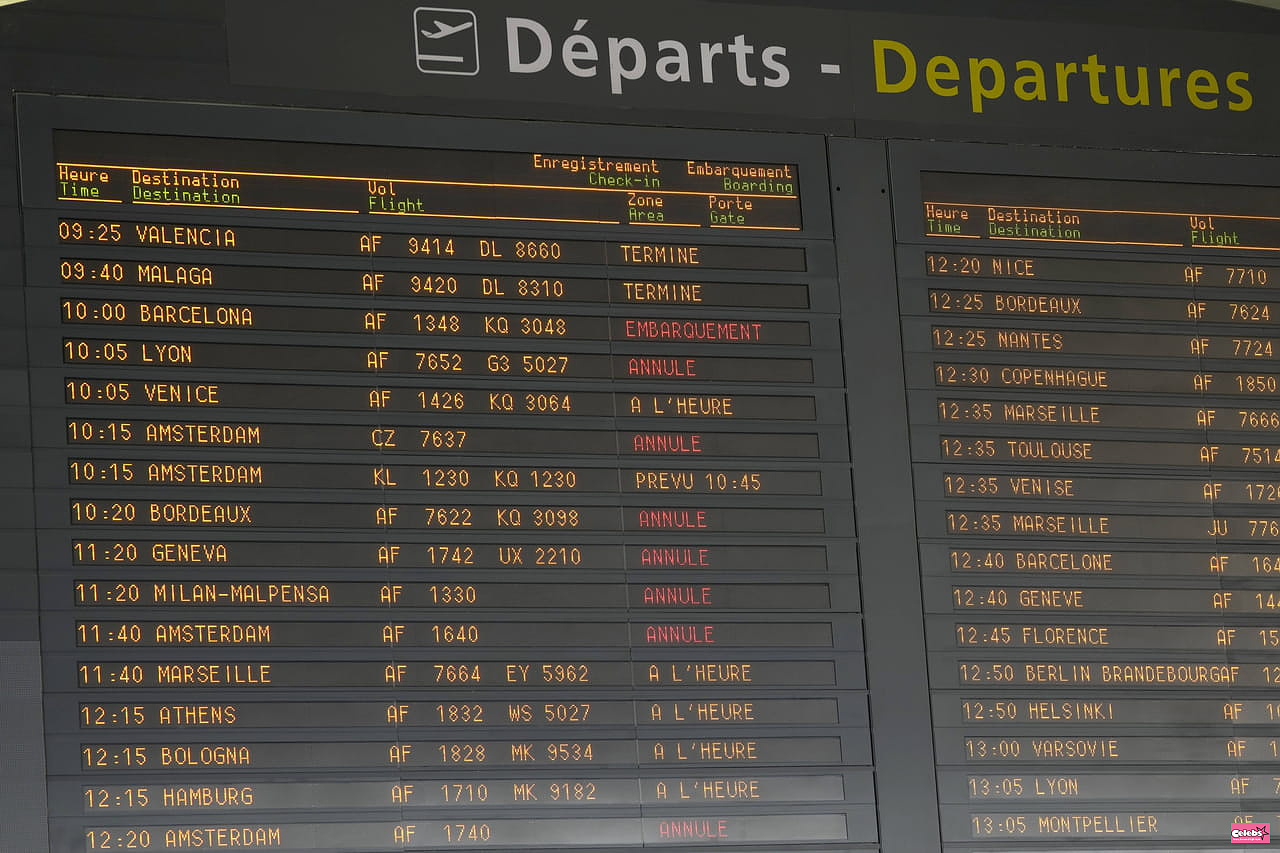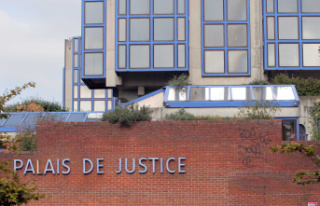If the majority air traffic controllers union has announced the lifting of its strike notice, others are still calling for mobilization. Disruptions are therefore still expected at airports this Thursday, April 25.
Although less significant than expected, disruptions are still expected at airports this Thursday, April 25. Air traffic controllers are determined to make their anger heard, despite the lifting of the strike notice filed by the majority union in the sector, the SNCTA. The organization which railed against measures to overhaul air traffic control in France finally found common ground during negotiations which continued until late in the night of April 23-24. She actually announced the lifting of her strike notice in a press release published this Wednesday morning, on the eve of the mobilization.
But the SNCTA's decision this time was not followed by the other unions who preferred to maintain their strike notice and allow air traffic controllers still dissatisfied with the negotiations to mobilize this Thursday, April 25. The strike at the airports is therefore still relevant, even if the disruptions should be less numerous. The SNCTA represents 60% of workers in the sector and its decision should be followed by many of them. Moreover, the union explained that "given the extremely short deadline linked to this last minute conciliation, each controller can cancel his prior declaration [of strike], despite the deadline of '6 p.m. the day before yesterday' having passed ". Note that the strike notices filed for the Ascension weekend, from May 9 to 11, by the SNCTA have also been lifted.
On Tuesday, before the SNCTA withdrew its strike notice, between 60% and 70% of flights were at risk of being canceled at all French airports according to estimates. The number of disruptions should be revised downwards, but deletions are still maintained. In Paris, we must expect 75% cancellations at Orly (a rate which therefore remains unchanged) and 55% cancellations at Roissy-Charles de Gaulle, compared to 65% before the withdrawal of the majority union.
In the south, several airports have announced cancellations, but their number has since been reduced: 65% of flights are canceled in Marseille and Nice. In all other airports in the country, 45% of flights are canceled. These reductions in air traffic were requested by the Directorate General of Civil Aviation (DGAC).
Travelers affected by these deletions were informed or were able to find out whether or not their flight was being maintained on the airline websites. However, it is better to be vigilant and recheck the situation of your flight after the few readjustments and reductions in the number of canceled flights. For travelers whose flight was not affected by the strike, no changes should disrupt travel.
At the origin of this strike: a new version of a protocol aimed at restructuring air navigation services deemed simply "unacceptable" by the main union in the sector, the SNCTA. It is particularly a question of reorganizing the work of air traffic controllers in order to counterbalance the expected increase in air traffic. In exchange for this, hiring and pay increases are promised.
Started fifteen months ago, the negotiations have stalled for a long time. Until Wednesday April 24, the SNCTA spoke of a “failure of conciliation”, relayed in particular by Le Figaro. “The version published [by the DGAC editor’s note] is in no way signable for the SNCTA which considers it a provocation if not an insult,” the union said on its website. But the discussions finally concluded on the night of April 23 to 24, leading to the lifting of the strike notice for Thursday, April 25.




![Euromillions result (FDJ): the draw on Friday May 3 [LIVE]](https://www.celebsnet.com/images/resize/95/334x215/haberler/thumbs/2024/05/_f2969.png)






